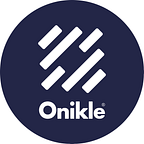The Love Affair: Google and AI
Parent Company of Google: Alphabet’s long-term prospects rely heavily on artificial intelligence. AI is the connecting thread that links search and ads, cloud, autonomous vehicles, healthcare, and a slew of the company’s other. This blog will look into Google’s approach to AI.
In a keynote address to promote Google’s first high-end Pixel smartphones in October 2016, CEO Sundar Pichai emphasized the relevance of artificial intelligence to the future of technology, stating, “It is clear to me we are evolving from a mobile-first to an AI-first world.” Since then, artificial intelligence has been the company’s primary priority in terms of budgets, acquisitions, and internal spending.
Gradient Ventures and the Google Assistant Investment Initiative are two AI-focused funds launched by Google. Gradient Projects debuted in July 2017. Gradient Ventures, unlike GV and capitalG, which operate independently of Google within the Alphabet corporate structure, is paid for on Google’s balance sheet. However, the fund intends to separate from the main business until it accelerates its investment speed. As of now Gradient only invested in early-stage deals, mainly in the United States — but in 2018 investment was in Benchsci, a medical sciences startup based in Canada that uses AI to speed biomedical developments.Top of Form
Google has also established a fund to expand the capability of Google Assistant, the company’s virtual assistant that uses natural language processing to take voice commands from users and scan the internet, plan activities, and set alarms, among other things. The Google Assistant Investment Program, which debuted in 2018, is aimed directly at early-stage startups that use Google’s virtual assistant.
Google is now investing internally in machine learning technologies by increasing its R&D spend, which it mostly devotes to its core strategic focus areas (such as search and machine learning). Google ranked at the top of the FAMGA in terms of R&D spend in actual dollars as well as proportional to revenue in 2017. The firm has also increased its capex spending, which is mostly used to finance its computing infrastructure.
Google has been aggressively recruiting AI startups for the past few years, in addition to funding through its own venture vehicles and more existing funds.In January 2014, the company paid $600 million for AI startup DeepMind, which was one of the first forays into AI and machine learning. DeepMind is now an Alphabet subsidiary and has become a leader in the machine learning space, with its software defeating a human world champion in the board game “Go.”
In 2018, the firm acquired Halli Labs, an India-based AI startup focusing on deep learning and machine learning systems, as well as AIMatter, a computer vision company that processes images using a neural network-based AI technology. In addition, in November 2017, the firm acquired Banter to expand its natural language processing capability for corporate cloud applications such as Google Hangouts.
Google has put a high priority on creating a superior digital assistant. Amazon and Apple, all of whom have released their own virtual assistants, are putting pressure on the firm. This presents a major challenge to Google’s core market, as each voice-based search performed by users using Alexa or Siri diverts business away from Google’s search engine.
Google CEO Sundar Pichai has stated that the firm is partnering with “every major device brand” in the US to cover a broad variety of devices, from dishwashers to security systems, in order to scale its digital assistant.
Google is now building its own hardware production facilities for its own products, called the Made by Google line. The Pixel smartphone, Chromebook notebook, and Google Home smart home computer are all part of this.
A number of Google’s recent purchases and acquisitions have been aimed at expanding its hardware capability, most prominently the $1.1 billion purchase of HTC’s handset division in September 2017. Google acquired ties to HTC’s hardware developers as part of the agreement, as well as a manufacturing base in Taiwan.
The main engine for Google’s internal research on AI and machine learning is Google AI. Formerly known as Google Research, the project was recently re-branded to reflect the company’s newfound focus on AI.
Google AI is the primary driver for Google’s internal AI and machine learning science. Formerly known as Google Science, the initiative was newly renamed to reflect the company’s newfound focus on artificial intelligence. The Google Brain team is part of Google AI and has led the charge in developing TensorFlow, Google’s open-source app library. The team also works to develop key skills such as translation and voice search. The team has been laser-focused on artificial intelligence and machine learning, as demonstrated by a spike in AI-related patent activity beginning in 2016.
Google is rethinking “all” of its products for an AI-driven future, according to CEO Sundar Pichai at the Google I/O conference. With AI as a top priority, the company is concentrating on the advancement of machine learning technologies from both external investments and in-house development.
If you are interested in our service, please register your email address in the following link to get an early access and test our All-new preprint platform that provides stress-free search experience with AI engine.
Written by Wanonno Iqtyider
